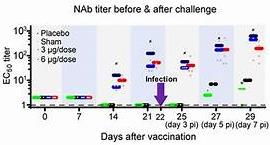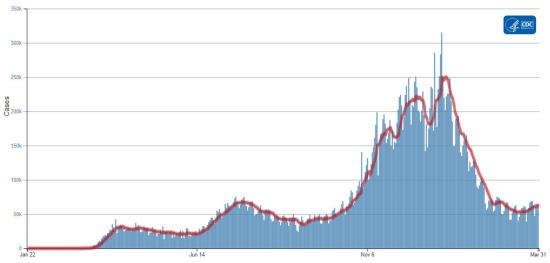 It was evident from the beginning of the COVID outbreak that many individuals were infected with SARS-CoV-2 but did not develop symptoms although they were transmitters of the virus contributing to ascending incidence rates.
It was evident from the beginning of the COVID outbreak that many individuals were infected with SARS-CoV-2 but did not develop symptoms although they were transmitters of the virus contributing to ascending incidence rates.
Scientists affiliated with the National Institutes of Health(NIH)conducted a survey on U.S. adults from early May through late July 2020 to determine the prevalence of antibodies in asymptomatic individuals. A total of 9,028 blood samples were examined from 11,382 volunteers reflecting the U.S. population that had previously not been diagnosed with COVID-19. The presence of antibodies was determined in 4.6 percent of these undiagnosed cases. Within this value there was marked regional and ethnic diversity. Younger participants yielded a proportion of 5.9 p ercent, black/African American, 14.2 percent, Hispanic 6.1 percent and urban residents 5.3 percent. The data indicated that there were 4.8 unrecognized cases for every diagnosis of COVID-19 during the period of review. This would correspond to 16.8 million undiagnosed cases in 2020 by late July.
ercent, black/African American, 14.2 percent, Hispanic 6.1 percent and urban residents 5.3 percent. The data indicated that there were 4.8 unrecognized cases for every diagnosis of COVID-19 during the period of review. This would correspond to 16.8 million undiagnosed cases in 2020 by late July.
Effective April 4th there have been 30.8 million diagnosed cases with 555,000 fatalities. The NIH data suggest a total of 147 million actual infections.
Daily Trends in COVID-19 Cases in the United States Reported to CDC 7-Day moving average

To date 69 million people have received one dose of vaccine and 37 million are fully vaccinated. This implies that approximately 150 of the U.S population have an acceptable level of immunity since many of the undiagnosed individuals were vaccinated. At present 35 percent of the U.S. population is immune, some distance from the desirable 80 percent or 260 million to achieve herd immunity. With a rate of vaccination of 2.8 to 3.0 million doses per day those eligible and willing to receive vaccine will have been protected by mid-June. Those under 18 years of age representing 24 percent of the population will only receive a COVID vaccine in November in decreasing age categories following Phase 3 trials in progress. Those disinclined or hesitant to receive an approved vaccine represent a risk to the entire population as their susceptibility provides an opportunity for the emergence and dissemination of variants of SARS-CoV-2.